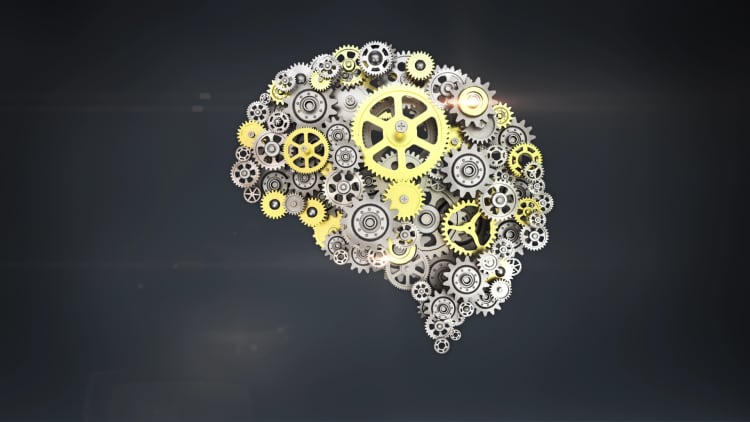People are always looking for ways to become smarter. But what if there was technology that could speed up the process, or better yet, make it effortless?
It sounds like the "Limitless" pill or the genetically engineered intelligence of "Brave New World."
But scientists are now testing different technologies that enhance your thinking, and according to Anders Sandberg, a Swedish research fellow at the Future of Humanity Institute at Oxford University, they may not be as far away as people think. In fact, some of these technologies could have practical relevance within the next decade.
Breakthroughs have already occurred. In the 1990s, neurologist Phil Kennedy built what he called the world's "first cyborg" by implanting wire electrodes into the brain of a paralyzed man and teaching him how to move a computer cursor with his mind.
Earlier this year, SpaceX and Tesla CEO Elon Musk backed the company Neuralink with the intent of further developing brain-machine interfaces, a technology that would merge humans with computers and could, in theory, make knowledge downloadable. Today, researchers are testing prosthetic limbs that not only respond to thought but actually sense touch and send signals back to the brain.
The thing is, the breakthroughs don't usually live up to their hype, at least not immediately.
"There is this general problem that we tend to overestimate how fast technology goes in the short run, and underestimate in the long run," Sandberg tells CNBC Make It.
Citing a phenomenon represented by the Gartner Hype Cycle, he explains that when there is some big breakthrough in a new technology, investments go up, the media latches on and the public speculates excitedly about the possibilities. But expectations are inflated. This is the overestimation in the short term.
Shortly thereafter, once expectations go unmet, the public begins to lose interest and the hype wears down. But scientists continue their work and find real-world applications. This creates underestimation in the long term.
Take augmented reality, for example, which is sort of like virtual reality, except that virtual reality replaces the real world with a computerized one, and augmented reality combines the two.
The technology enhances your perception of the world around you — the feeling, the sound, even the smell. Its groundbreaking contribution to society is anticipated to be in helping people process information more quickly, reports TechCrunch: "Humans crave omnipotence. When accurate information can be accessed faster, productivity increases."
Yet, according to the Gartner curve, Sandberg says, "Right now, people are maximally disillusioned with augmented reality." The hype has peaked and since hit its trough. So, many people don't realize that in five or 10 years, he says, with smartphones already being able to connect to headsets, the technology is probably going to be very practical and useful.
Of course, augmented reality headsets don't directly change your brain as do, say, implants.
Implant technology, Sandberg admits, will develop slowly throughout the next decade or so, but he affirms, "20 or 30 years down the line, [implants] might actually become quite relevant."
There are versions in use already. Cochlear implants help people who are deaf. Brain pacemakers maintain equilibrium in the brain for people with Parkinson's disease by emitting electrical signals, similar to how heart pacemakers regulate the heart. And some people with epilepsy have devices implanted to tame seizures.
But these applications are all for specific ailments. The invasive implants used to treat Parkinson's and epilepsy pose risks that are only deemed necessary when the conditions are too debilitating, and, typically, when other options have been exhausted.
To use brain implants to enhance people who are already healthy is a step further. "If implant technology gets cheaper, safer and less invasive," Sandberg says, "then people are going to be trying more and more [to test new applications]."
He speculates about the possibilities. People with cochlear implants can now listen to music straight from a microchip into their neural system. With a little reprogramming, he says, maybe you could perceive other waves, such as ultrasounds.
Some brain pacemakers have already been shown to successfully mute the feeling of pain. "I can totally imagine a military application for that," he says.
There could be others that would allow you to regulate internal, subconscious processes. "Maybe I want an alarm clock that works by actually making me alert when I wake up," Sandberg says. "And when it's time to go to sleep, of course, my implant turns down my alertness level."
The future directions that the technology could go only extrapolate.
Notably, scientists are closer to developing these kinds of technologies than actually merging your computer with your brain. According to Sandberg, the ubiquity of that kind of interface is likely more than a few decades away. That said, there is also a lot of uncertainty, even among the experts.
"We will find a few surprises because biotechnology is moving ahead in leaps and bounds," he says. "Even the people in the field don't really know what to expect next."
Like this story? Like CNBC Make It on Facebook!
Don't miss: Why Gen Z responds differently to the success-predicting 'Marshmallow Test' than you would have




